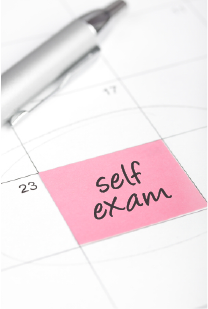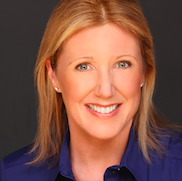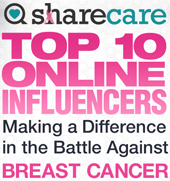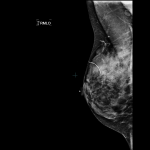Don’t Be Shy
 Breast self-examination (BSE) is one of our key weapons in the arsenal to detect breast cancer as early as possible. It only takes a few minutes a month, yet a woman can potentially save her own life by taking the time to do it. For reasons that have nothing to do with science or common sense, the government panel known as the U.S. Preventive Services Task Force, which did not include even one doctor specializing in breast cancer as a panelist, recommends AGAINST women doing self-examinations. See my take on this HERE.
Breast self-examination (BSE) is one of our key weapons in the arsenal to detect breast cancer as early as possible. It only takes a few minutes a month, yet a woman can potentially save her own life by taking the time to do it. For reasons that have nothing to do with science or common sense, the government panel known as the U.S. Preventive Services Task Force, which did not include even one doctor specializing in breast cancer as a panelist, recommends AGAINST women doing self-examinations. See my take on this HERE.
BSE is especially important if you are younger than 40, since you are not yet in the group of women having yearly screening mammograms. Many young women with breast cancer find their own cancers; if it is smaller when you find it, you have a better chance of beating the disease. Self-examination is also important if you are older than 40, and you are diligent about having your yearly mammogram. This is because mammography does not find all cancers and it is especially limited if you have dense breasts (up to half of cancers in women with dense breasts will not be seen on the mammogram – What Breast Density Means to You).
As for timing, it’s best to perform a BSE once a month, ideally at the same time in your menstrual cycle each month if you are pre-menopausal (for example, the day after your period ends), as the breasts don’t always feel the same at different points in the cycle. If you are post-menopausal, choosing a day each month, for instance the 1st of each month, might help you remember to do the exam regularly.
Many women self-examine in the shower, but that is a matter of personal preference. A full BSE includes visual inspection in front of a mirror, and then feeling the breasts while standing up and lying down. See useful instructional videos from HealthiNation here and from the Susan G. Komen foundation here. Your gynecologist can show you how to do a good self-exam as well.
If you ever detect something abnormal on your examination you need to see your doctor right away. The doctor will decide if you should be sent to a radiology center for a diagnostic mammogram and a breast ultrasound (also called a sonogram), and if you should be referred to a breast surgeon. You might need to have a needle biopsy, which is a minimally-invasive office procedure. Very often (8 times out of 10), the lump that you feel turns out to be something benign (not cancer), such as a cyst or a common benign tumor called a fibroadenoma. However, if it does turn out to be cancerous, the sooner you are diagnosed and treated the more likely you are to survive.
If you feel something abnormal in your breast, but your doctor doesn’t feel anything and tells you everything is fine without sending you for tests, you should consider getting a second opinion from another doctor. There are too many stories of “delayed diagnosis of breast cancer”– it is the most common reason for medical malpractice lawsuits in the U.S. Many of these suits are frivolous and unfair, but there are sometimes real instances of delayed diagnosis. Trust yourself if you think something might be wrong. You know your body better than anyone.
Tags: breast cancer, breast density, breast exam, breast lump, breast self exam, BSE, dense breasts, government task force on mammograms, mammogram, missed breast cancer, Susan G Komen Foundation, USPSTF










